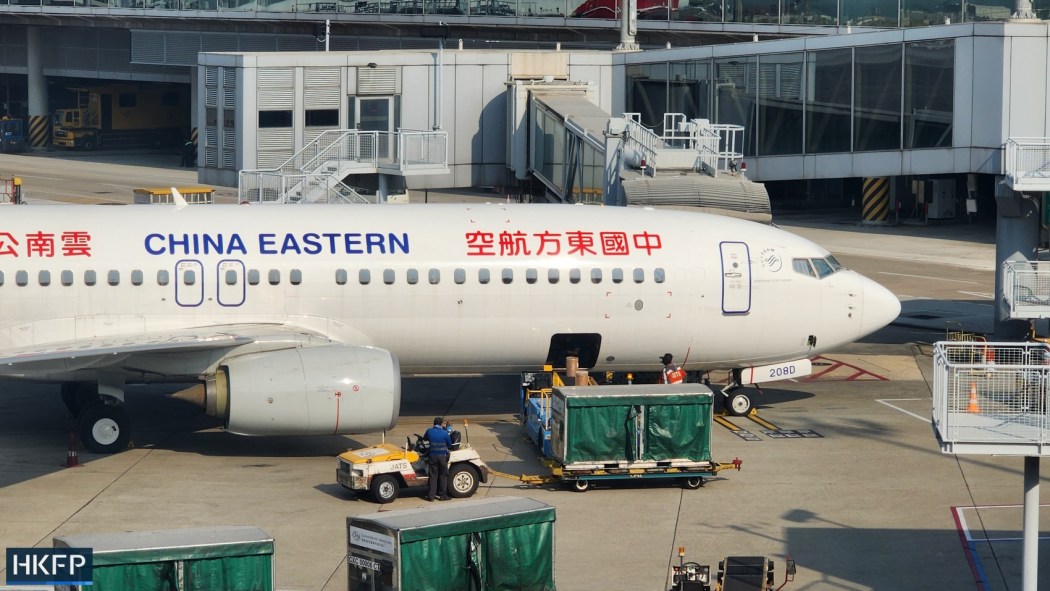by Laurie Chen
China is experiencing a huge Covid-19 surge after years of hardline containment restrictions were dismantled last month.

A growing number of countries are worried about a lack of data and transparency surrounding China’s outbreak.
Here is why it is sparking concern:
Unreliable data
Beijing has admitted the scale of the outbreak has become “impossible” to track following the end of mandatory mass testing last month.
The National Health Commission has stopped publishing daily nationwide infection and death statistics.
That responsibility has been transferred to the Chinese Center for Disease Control and Prevention (CDC), which will only publish figures once a month after China downgrades its management protocols for the disease on January 8.
China has only reported 15 Covid deaths since it began unwinding restrictions on December 7, shortly after which it narrowed the criteria by which deaths from the virus are recorded.
This has stoked concerns that the wave of infections is not being accurately reflected in official statistics.
Authorities admitted last week that the scale of data collected is “much smaller” than when mandatory mass PCR testing was in place.

CDC official Yin Wenwu said authorities are now compiling data from hospitals and local government surveys as well as emergency call volumes and fever medicine sales, which will “make up for deficiencies in our reporting”.
Chinese hospitals and crematoriums are struggling with an influx of patients and bodies, with rural areas hit particularly hard.
Several countries including the United States, Australia and Canada last week said they were imposing testing restrictions on arrivals from China because of a lack of transparency on infection data.
Piecemeal estimates
Last month, a few local and regional authorities began sharing estimated daily infection totals as the scale of the outbreak remained unclear.
Health officials in the wealthy coastal province of Zhejiang believed one million residents were being infected every day last week. The cities of Quzhou and Zhoushan said at least 30 percent of the population had contracted the virus.
The eastern coastal city of Qingdao also estimated around 500,000 new daily cases and the southern manufacturing centre of Dongguan forecast up to 300,000.
Officials in the island province of Hainan estimated Friday that the infection rate there had surpassed 50 percent.
But top health official Wu Zunyou said Thursday that the peak had passed in the cities of Beijing, Chengdu and Tianjin, with Guangdong province — the country’s most populous — saying the same on Sunday.
Shanghai’s top infectious diseases expert, Zhang Wenhong, has told state media the megacity may have entered its peak period on December 22, with an estimated 10 million residents having contracted Covid.
Leaked notes from a meeting of health officials last month revealed they believed 250 million people had been infected across China in the first 20 days of December.
Independent infection models paint a grim picture. University of Hong Kong researchers have estimated nearly one million Chinese may die this winter as a result of opening up.
And health risk analysis firm Airfinity forecast 11,000 deaths and 1.8 million infections per day, with a total of 1.7 million fatalities by the end of April.
New variants?
Many countries have cited concerns over potential new variants as a reason to screen Chinese arrivals for Covid.

But there is as yet no evidence of new strains emerging from the current wave.
Top CDC official Xu Wenbo said last month that China was developing a national genetic database of Covid samples derived from hospital surveillance that would help track mutations.
Chinese health experts have said in recent days that the Omicron subvariants BA.5.2 and BF.7 are most prevalent in Beijing, in response to public fears that the Delta variant may still be circulating.
They said Omicron also remained the most dominant strain in Shanghai.
In many Western nations, these strains have been overtaken by the more transmissible subvariants XBB and BQ, which are not yet dominant in China.
Beijing has submitted 384 Omicron samples in the past month to global online database GISAID, according to its website.
Countries that have imposed Covid tests on China arrivals – click to view.
Here is a run-down of the countries that have imposed mandatory Covid tests and other rules on arrivals from China:
– United States –
As of January 5, the United States will require negative Covid tests taken within two days of departure — or documentation proving passengers have recovered from the virus within the last 90 days — for all entries from China.
Acceptable tests include “a PCR test or an antigen self-test administered and monitored by a telehealth service or a licensed provider”, according to the US Centers for Disease Control.
The rules include those travelling from Hong Kong and Macau.
– European Union –
Starting January 5, all those arriving in France from China must present a negative PCR test result, or a rapid antigen test, that was taken less than 48 hours before their flight.
Italy and Spain have also imposed Covid test requirements.
European countries are set to meet this week to discuss a joint response to the issue, with incoming EU presidency holder Sweden saying it was “seeking a common policy for the entire EU when it comes to the introduction of possible entry restrictions”.
– Australia
Australia is also requiring travellers from China — including Hong Kong and Macau — to provide a negative Covid-19 test before arrival, citing a “lack of comprehensive information” from Beijing about the outbreak.
– Canada –
Canada is asking travellers arriving from China to show a negative Covid test taken no more than two days before their departure.
– United Kingdom –
In rules that come into effect on January 5, all travellers to the UK from China must submit a negative test before boarding.
The UK government also said it would test “a sample of arrivals” to monitor for new variants.
– Israel –
Israel is requiring Covid tests on foreigners intending to travel from China, with a screening centre set up to test arrivals who volunteered.
– Japan –
Japan was one of the first countries to impose new rules on arrivals from China, requiring them to submit a negative Covid test.
Those who test positive will be quarantined for seven days at designated facilities and Tokyo will also cap flights coming from mainland China.
– South Korea –
South Korea has also taken steps to screen travellers from China, requiring them to provide a negative Covid test before and after arrival.
Travellers from Hong Kong and Macau are exempt from the rules.
– India –
India will require travellers from China and a spate of other Asian countries to provide a negative Covid test taken within 72 hours of departure to the country.
– Morocco –
The north African nation of Morocco has taken some of the strictest measures, banning entry outright for all travellers from China.
The ban will take effect on January 3 and last until further notice, “in order to avoid a new wave of contaminations in Morocco and all its consequences”, the country’s foreign ministry said.
But the country’s total number of submissions to the database, at 1,308, is dwarfed by those of other nations, including the United States, Britain, Cambodia and Senegal.
Recent samples from China “all closely resemble known globally circulating variants seen… between July and December”, GISAID said Friday.
University of Hong Kong virologist Jin Dong-yan said on an independent podcast last month that people need not fear the risk of a deadlier new variant in China.
“Many places all over the world have experienced (large-scale infection) but a more deadly or pathogenic variant did not emerge afterwards,” said Jin.
“I’m not saying that the emergence of a (more deadly) strain is completely impossible, but the possibility is very small.”
Support HKFP | Policies & Ethics | Error/typo? | Contact Us | Newsletter | Transparency & Annual Report | Apps
Help safeguard press freedom & keep HKFP free for all readers by supporting our team















